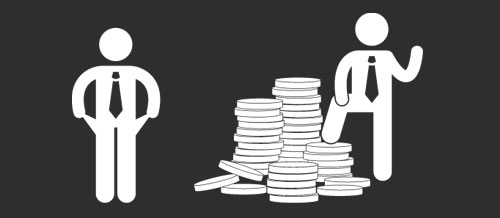
Winston Churchill once wrote: “You don’t make the poor richer by making the rich poorer.”
If he were sitting in the House chamber during President Barack Obama’s State of the Union Address, Churchill would have been flabbergasted by the contention that a “wealth gap” was the cause of the nation’s woes.
It’s not a wealth gap that is slowing recovery – it’s a crisis of confidence in Obama’s ability to lead the nation.
Some of history’s most accomplished leaders, like Churchill, got their inspiration from time honored thought leaders and statesmen. In his State of the Union Address, Obama got his inspiration from the Occupy movement, and catered to this largely discredited group.
This agenda is fraught with peril.
It is clear that rather than face the lingering unemployment numbers, Obama has decided to embrace a Pro-Poverty vs. Pro-Growth philosophy.
Looking to win reelection by instigating class war is immoral and inexcusable.
It threatens to break the very social fabric of this country. And some groups are starting to buy into this toxicity.
Politico recently revealed that the number of times the media mentioned the phrase “income inequality” increased nearly five-fold during the first two months of the Occupy protests.
In a late 2011 poll by the congressional daily newspaper The Hill, data showed that almost 75 percent of Americans believe that inequality is a problem for the United States.
In his State of the Union Address, the president suggested that: “We can either settle for a country where a shrinking number of people do really well, while a growing number of Americans barely get by. Or we can restore an economy where everyone gets a fair shot, everyone does their fair share, and everyone plays by the same set of rules.”
This is his reference to the “Buffett Rule,” a proclamation by Warren Buffett that his tax rate is less than his secretary. And if to drive the message home, Buffett’s secretary Debbie Bosanek, was sitting near Michelle Obama.
This issue is misleading because Obama continues to equate the capital gains tax rate with the ordinary income tax rate. These are two different taxes.
For Buffett or any other person, before having capital to invest you have to first earn it, which leads to higher personal income rates. But these funds are being redeployed and invested into all sorts of enterprises, small and large, new and old, at a lower tax rate to encourage, inspire and create a class of risk takers. Without risk takers, there can be no job creation.
Now Obama is suggesting that a tax rate of 30 percent be imposed on the wealthy. But if you listen closely, the definition of wealthy keeps changing.
Remember when the wealthy were once Americans with annual incomes of $250,000? Now they are described as “millionaires and billionaires.” If this is supposed to mollify most Americans, it will be an utter failure.
The late comedian George Carlin once remarked: “Conservatives say if you don’t give the rich more money, they will lose their incentive to invest. As for the poor, they tell us they’ve lost all incentive because we’ve given them too much money.”
Does he honestly think that Congress will be amenable to altering the current tax code during an election year? Understanding we have a serious problem with our tax code, it is going to take far more than a couple of tweaks to fix it. This is pure political rhetoric.
It is also a self-fulfilling prophecy. Obama cannot mention jobs without raising taxes, growing the size of government and increasing regulations. These are not compatible to job creation; something he would have instinctively known if had ever had to create jobs, or even included job creators in his inner circle.
In his State of the Union Address, the president boasted that: “If you’re an American manufacturer, you should get a bigger tax cut. If you’re a high-tech manufacturer, we should double the tax deduction you get for making products here.”
It sounds like a practical idea, but most economists contend that tax breaks to encourage specific investment decisions are a bad idea, and are rarely effective. Tax breaks given in the past actually diminished investment by the technology sector. Instead, it is generally agreed that the key to investments and job creation is reducing corporate taxes.
It is obvious that a desperate Obama will try throwing everything and anything against the wall to see what sticks. Promising more handouts? Sure.
Castigating the wealthy as the scourge of the earth? Sure. Creating class war? Sure. Creating jobs? Not so fast!
The Obama State of the Union Address was nothing more than a stump speech that he will be making across the country. And he got the networks to help him get his reelection bid out to America. But this time people are listening and they don’t like what they hear.
According to Kantar Media, which studied the tuning behavior of 100,000 households across the United States in the moments leading up to, during, and after President Obama’s State of the Union address, during the first five minutes of the address, 27 percent of the audience tuned away.
The bottom line for Obama: no jobs, no votes.
FEB



